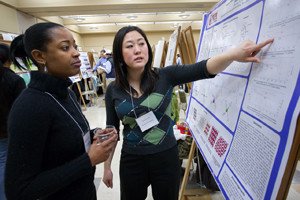 The Master of Healthcare Administration degree is a popular choice among professionals aspiring to leadership roles in healthcare, but the research requirements for an MHA degree often represent a bit of confusion for prospective applicants. Many people assume that all graduate degrees require an extensive research component, even as students are attending rigorous classes in their chosen field. While true in many cases, this is a blanket statement that doesn’t represent all graduate degrees or even all Master of Healthcare Administration programs nationwide. Before enrolling in such a program, it’s important to understand the potential research requirements as well as the many alternatives to traditional graduate research placements.
The Master of Healthcare Administration degree is a popular choice among professionals aspiring to leadership roles in healthcare, but the research requirements for an MHA degree often represent a bit of confusion for prospective applicants. Many people assume that all graduate degrees require an extensive research component, even as students are attending rigorous classes in their chosen field. While true in many cases, this is a blanket statement that doesn’t represent all graduate degrees or even all Master of Healthcare Administration programs nationwide. Before enrolling in such a program, it’s important to understand the potential research requirements as well as the many alternatives to traditional graduate research placements.
The Graduate Thesis: Research Required
Many M.H.A. programs require a graduate thesis before students can be moved from degree candidacy to conferral. This thesis must be based on scholarly research performed throughout the students three or four years of enrollment in the graduate program. Because this thesis requirement is such a central component of many M.H.A. programs, most schools will offer students the ability to meet with an academic advisor or supervising professor before their first classes even begin. This allows the student to learn about the school’s strict guidelines and requirements when it comes to performing research, documenting that research, and composing the paper. Students will also spend this meeting selecting a topic within their area of expertise, and this will guide both their research and their elective course choices throughout the entire degree program.
Though the thesis is a popular option for M.H.A. degree programs, it’s not the only way that faculty members assess a student’s overall comprehension of key material during their enrollment at the school. Some programs are abandoning the traditional thesis in order to focus on more highly effective skills assessment techniques. In these cases, students will write only a small series of research papers in their classes, focusing instead on a major, end-of-program assessment.
The Oral Examination: A Hot Trend in Graduate Education
When the thesis is cast aside, it is almost always replaced by an oral examination in the presence of a student-selected faculty panel. Sometimes called a “comprehensive examination,” this exam follows different rules than almost any other test in grad school. Students are typically permitted to select one or several topics that they feel most confident about. Then, the faculty panel will convene prior to the oral exam and select anywhere from one question to 5 questions in those subject areas.
On exam day, students will have to be prepared with a comprehensive knowledge of their chosen topics. Faculty members will ask their chosen questions of the student and, with only a whiteboard or computer projector in front of them, students will have to orally work through the program and present their answer to the panel. If the student presents a satisfactory answer to each question, they pass the exam.
Capstone Projects: A Final, Rare Option
Finally, some M.H.A. programs require a capstone project in place of a thesis or comprehensive exam. This project may include working in a healthcare simulation alongside other students, working on a group project relevant to the industry, or performing independent study of a key healthcare subject area. This project, evaluated by a faculty panel, will determine if and when students can graduate from the program.
Three Different Ways to Prove Subject Mastery
Research is part of any graduate program, with small research papers required by almost every course that students take. As far as completing the program, however, research is only one way to assess student learning. Students may be able to largely bypass the traditional research requirements for an MHA degree, instead focusing on a final project or oral exam that takes far less time to complete.
Related Resource: Are There Practical Experience Courses in an MHA Program?